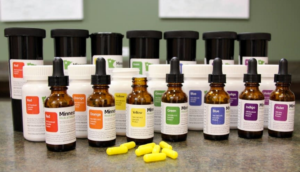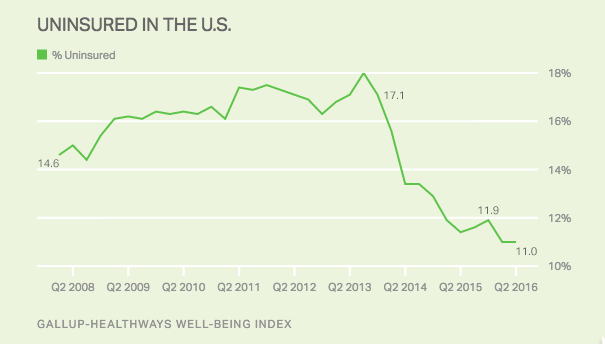 The Affordable Care Act repeal, which will lead to 23 million Americans losing their health insurance protections, isn’t the only way the Trump Administration is endangering Americans. It’s proposal to ban patients from getting relief from cannabis-based medicines is just as ill-informed and cruel.
The Affordable Care Act repeal, which will lead to 23 million Americans losing their health insurance protections, isn’t the only way the Trump Administration is endangering Americans. It’s proposal to ban patients from getting relief from cannabis-based medicines is just as ill-informed and cruel.
Trump’s states rights-loving Attorney General Jeff Sessions has asked Congress to restore the federal government’s ability to crack down on state-authorized medical cannabis businesses. Since 2014, Congress has prohibited the federal Department of Justice from using funds to prosecute these state authorized businesses.
In a letter to Congress, Sessions made his case:
“I believe it would be unwise for Congress to restrict the discretion of the Department to fund particular prosecutions, particularly in the midst of an historic drug epidemic and potentially long-term uptick in violent crime. The Department must be in a position to use all laws available to combat the transnational drug organizations and dangerous drug traffickers who threaten American lives.”
I can’t think of a delicate way to say this. This is moronic. Trump and Sessions say they are making battling rising opioid addiction a high priority, but this move would prevent pain patients from transitioning from highly addictive and dangerous opioid pain relievers to much less addictive and dangerous cannabis-based pain medicines.
Before you bust out your best adolescent weed jokes or Reefer Madness paranoia, give some serious consideration to recent peer-reviewed medical research on this topic, as summarized by Scientific American:
A 2016 survey from University of Michigan researchers, published in the The Journal of Pain, found that chronic pain suffers who used cannabis reported a 64 percent drop in opioid use as well as fewer negative side effects and a better quality of life than they experienced under opioids. In a 2014 study reported in JAMA The Journal of the American Medical Association, the authors found that annual opioid overdose deaths were about 25 percent lower on average in states that allowed medical cannabis compared with those that did not.
Marijuana can be habit-forming, at least psychologically, but the risks are not in the same league as opioids. A 20-year epidemiological review of studies concluded that more than nine out of 10 people who try marijuana do not become dependent on the drug. The review paper, published in 2014, said the “lifetime risk of developing dependence among those who have ever used cannabis was estimated at 9 percent in the United States in the early 1990s as against 32 percent for nicotine, 23 percent for heroin, 17 percent for cocaine, 15 percent for alcohol and 11 percent for stimulants.”
Also, unlike the case with opioids, it is virtually impossible to lethally overdose on marijuana—because a user would have to consume massive quantities in a prohibitively short time. The National Institute on Drug Abuse (NIDA) says such a fatal result is very unlikely. Meanwhile, heroin-related overdose deaths have more than quadrupled since 2010. The U.S. Centers for Disease Control and Prevention says that from 2014 to 2015 heroin overdose death rates increased by 20.6 percent—causing nearly 13,000 deaths in 2015.
This is no longer coming from some guy in a Grateful Dead t-shirt making vague anecdotal claims. This is now coming some of the foremost medical authorities in the nation. For many people, cannabis-based medicines can ease their pain without the level of addictiveness and nasty side effects that unfortunately come with opioid pain relievers.
Beyond pain relief, cannabis-based medicines — often with the intoxicating component of cannabis oil (THC) removed when it isn’t medically necessary — also are helping Minnesota patients who have been diagnosed with a variety of diseases, such as cancer, Glaucoma, HIV/AIDS, Epilepsy, Tourette Syndrome, Multiple Sclerosis, ALS, Crohn’s Disease, and terminal illnesses.
In Minnesota, most patients with those ailments who have been using cannabis-based oils, tinctures and capsules report to officials at the state Department of Health that they are experiencing substantial benefits from using cannabis-based medicine. On a scale of 1 to 7, where 1 is “no benefit” and 7 is “great deal of benefit,” nearly two-thirds (64%) of patients chose a 6 or 7.
Meanwhile, no patients report being hospitalized with complications from the cannabis-based medicine, something that cannot be said for opioids and many other FDA-approved medications. Minnesota’s Commissioner of Health, Dr. Ed Ehlinger, looked at this data and concluded:
“Based on this evidence from the first year, Minnesota’s approach is providing many people with substantial benefits, minimal side effects and no serious adverse events.”
For years now, Americans have seen patients benefitting from medical cannabis, and an overwhelming number of them like what they see. A February 2017 Quinnipiac University survey found that 93 percent support “allowing adults to legally use marijuana for medical purposes if their doctor prescribes it,” including 85 percent of Republicans. Only 23 percent of Americans, and 36 percent of Republicans, support “the government enforcing federal laws against marijuana in states that have already legalized medical or recreational marijuana?”
All of this leaves me wondering, what exactly are Jeff Sessions and Donald Trump smoking?
Note: I’m a public relations consultant who has in the past done work for one of two medical cannabis businesses licensed by the State of Minnesota. I no longer work with that company, and this post reflects my personal views.

 And despite years of heavily-financed and relentless attacks on the model, most Americans now have a
And despite years of heavily-financed and relentless attacks on the model, most Americans now have a